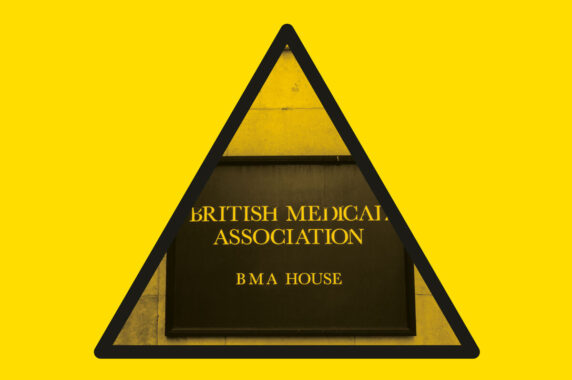2022 in review: Sexism at BMA House

Problems at BMA House persisted this year, as GPs reported back in June when a Pulse investigation unveiled a ‘toxic culture’ at the Association.
Our probe followed Dr Farah Jameel’s return to her post as chair of the BMA’s GP Committee (GPC) in England, after she’d taken sick leave just three months into her tenure.
Dr Jameel, the first female to chair the GPC in England in its 109-year history, had been signed off work having reported being subjected to sexist comments and an unsupportive environment.
Her allegations came as no surprise to many.
First, there was the 2019 Romney report, in which author Daphne Romney QC wrote about female doctors and staff feeling ‘undervalued, ignored and patronised because they are women’.
She recommended that committee members undertake diversity, equality and bullying training to shake up the ‘old boys’ club network’ culture and put a stop to sexism and sexual harassment.
By all accounts those recommendations fell on deaf ears, because a second review penned by Ijeoma Omambala QC and released in May this year found that bullying was still a problem at the England GPC, with women and other minority groups being marginalised.
All this might seem removed from day-to-day life in general practice. But the issues at hand matter to each and every GP at grassroots level.
To start with, negotiators inevitably prioritise their own agendas, and the interests of a large proportion of the GP workforce go unrepresented, their voices unheard.
Take sessional GPs, for example. According to Ms Omambala’s report, just 20 sit on the 70-strong committee in England despite sessionals comprising almost half (48%) of the whole workforce.
Furthermore, any GPs who don’t fit the mould – notably, if they happen to identify as female – are less likely to be elected to BMA council. Women comprise 58% of the GP population yet make up only 38% of the UK GPC.
One positive is that the BMA’s complaints procedure was overhauled in 2019, spurring staff to come forward and speak out where previously, they’d been stifled.
But that in itself has created as well as solved problems. As more complaints roll in, more are directed down the route of lawyer-led investigation. And who foots the bill? Ordinary, BMA members on the ground.
So, hopes for change and a more supportive, inclusive environment at BMA House in the wake of two separate investigations were dashed, their recommendations largely ignored.
There was cause for cautious optimism when two new joint CEOs of the BMA – both women – took the helm in the summer, and Dr Jameel went back to work a few months after going on sick leave.
But in another twist in the meandering tale of BMA shenanigans, Dr Jameel was herself the subject of two complaints by staff members and placed on temporary suspension in November, weeks before giving birth.
Those complaints are currently being investigated. And delegates at last month’s England LMCs conference expressed concern at the ‘optics of this action’, noting her suspension – and particularly the lack of transparency around the circumstances behind it – as contradicting moves to shut down ‘institutional sexism within the BMA’.
Pulse October survey
Take our July 2025 survey to potentially win £1.000 worth of tokens

Related Articles
READERS' COMMENTS [2]
Please note, only GPs are permitted to add comments to articles











BMA members on the GPC committee have to get Unite membership to get proper representation. That pretty much sums up the BMA.
GPC is full of infighting and vested interests. Fixed terms were suggested to try and resolve this, as well as not allowing the same person to sit on lots of committees. Vested interests blocked that.
Someone had the bright idea of getting professional negotiators involved because the GPC can’t organise a piss up in a brewery. Vested interests blocked that. We had noticed this from the sidelines. Some of us were too polite to mention it.
Sessional GPs interests aren’t properly represented as their interests are blocked by partners. Giving them a separate committee and a separate voice was again blocked by vested interests.
From the article sexism is a problem at the BMA and racism too although that was hidden in just one paragraph. Maybe more of us should follow suit and join unite. Even if it’s only the 58% of GPs that are women and the however many Percent it is that are men and not white.
Im not a member of the BMA or unite although I used to be a member of the BMA until I found they didn’t represent people like me.
I am sorry that other doctors who are female have felt that their opinions have mattered less on account of their gender. I have not experienced this, personally, but maybe I am in the lucky minority, I don’t know. The BMA has been a breath of fresh air for me, personally. There is fierce debate but a lot of hard work and sharing of information too.
If the entire medical profession signed up with the BMA, then the BMA would be truly representative of the whole profession.
United, we can make a difference for both our profession and the healthcare system in which we work.
I hope that 2023 is the year whereby we make this happen.
Iona Collins
BMA member and representative